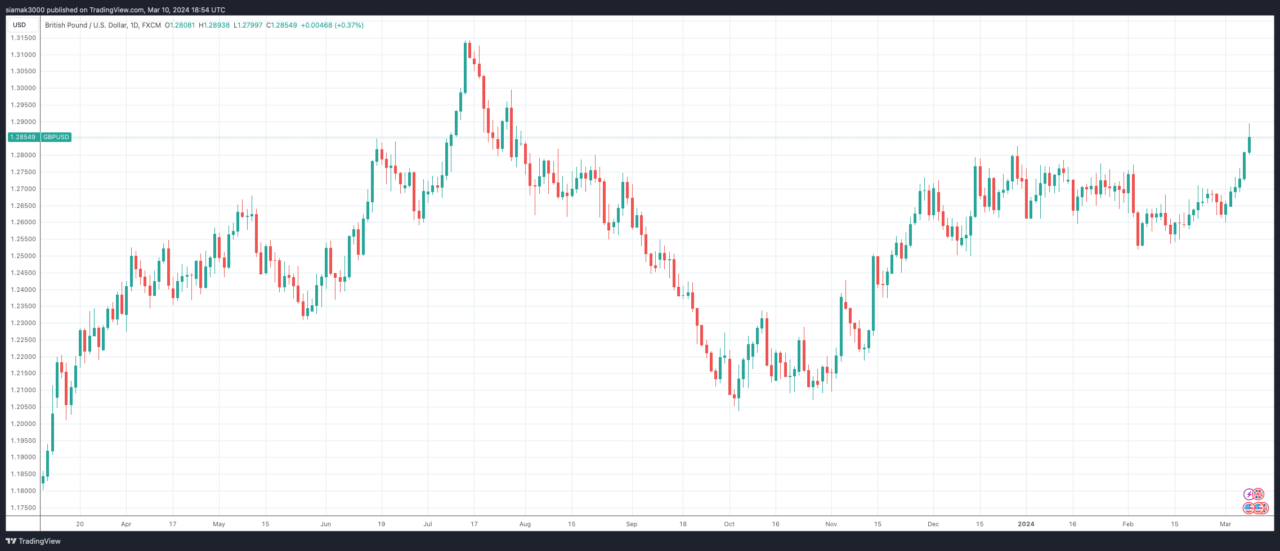In an article by Anchalee Worrachate, Bloomberg News reports that the British pound is outperforming more than 90% of the world’s currencies in 2024. This impressive performance is attributed to signs that the UK economy is holding up better than expected, which is likely to keep interest rates higher for longer.
According to Bloomberg’s analysis of over 140 global foreign-exchange rates, only 11 currencies, including those of Kenya, Zambia, and Sri Lanka, have outperformed the pound sterling this year. Analysts cite the UK economy’s resilience as the primary reason for the currency’s strong performance. As reported by Bloomberg, the UK’s better-than-feared economic outlook is expected to encourage the Bank of England to maintain interest rates at their current levels for longer than many of its major counterparts, such as the US Federal Reserve and the European Central Bank.
Bloomberg’s article highlights the divergence in monetary policy expectations, with traders anticipating the Fed and ECB to start cutting rates in June, while the Bank of England is expected to begin easing only in August. Athanasios Vamvakidis, head of G-10 currency strategy at Bank of America, sees the pound rising to $1.37 by year-end, citing the improving data mix that supports the currency, particularly given the bearish consensus.

The pound’s recent rally, which saw it rise to around $1.29 last week – its highest level in seven months – could be further reinforced by upcoming data releases, as reported by Bloomberg. Average weekly earnings are forecast to show a robust job market in the UK, with wages rising 5.7%. Additionally, monthly gross domestic product data is expected to show the economy growing again in January after a mild contraction in December, while industrial production is set to post a slightly faster annual advance of 0.7%.
Although the UK avoided the sharp downturn predicted for 2023, Bloomberg reports that aggressive interest rate hikes, which took the key rate to 5.25%, still left the economy stagnating. The report goes on to say that consumers faced immense pressure as the cost of food, energy, and mortgage payments soared, dampening spending, and business confidence plunged to its lowest since the global financial crisis. However, Bank of England Governor Andrew Bailey recently noted “encouraging signs” on key indicators in the jobs market and services prices, as reported by Bloomberg, even as he emphasized the need for evidence of sustained progress.
Despite the optimism, Bloomberg’s article also highlights reasons for caution, such as the slip in UK consumer confidence in February, suggesting that households may not be ready to splash out just yet.
Featured Image via Pixabay









